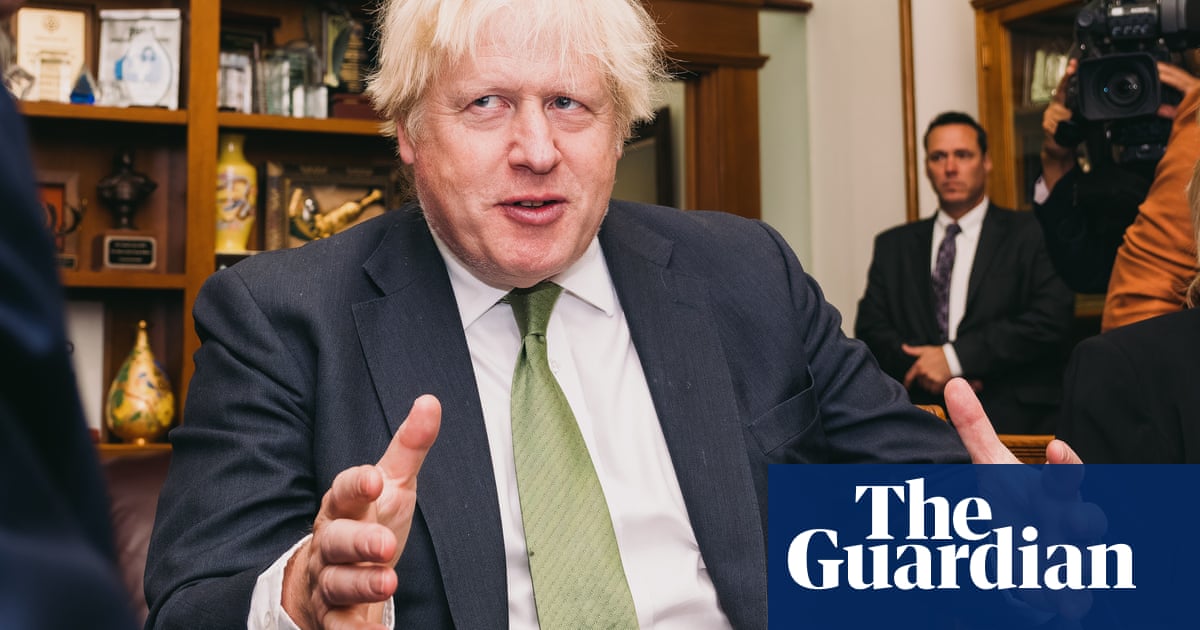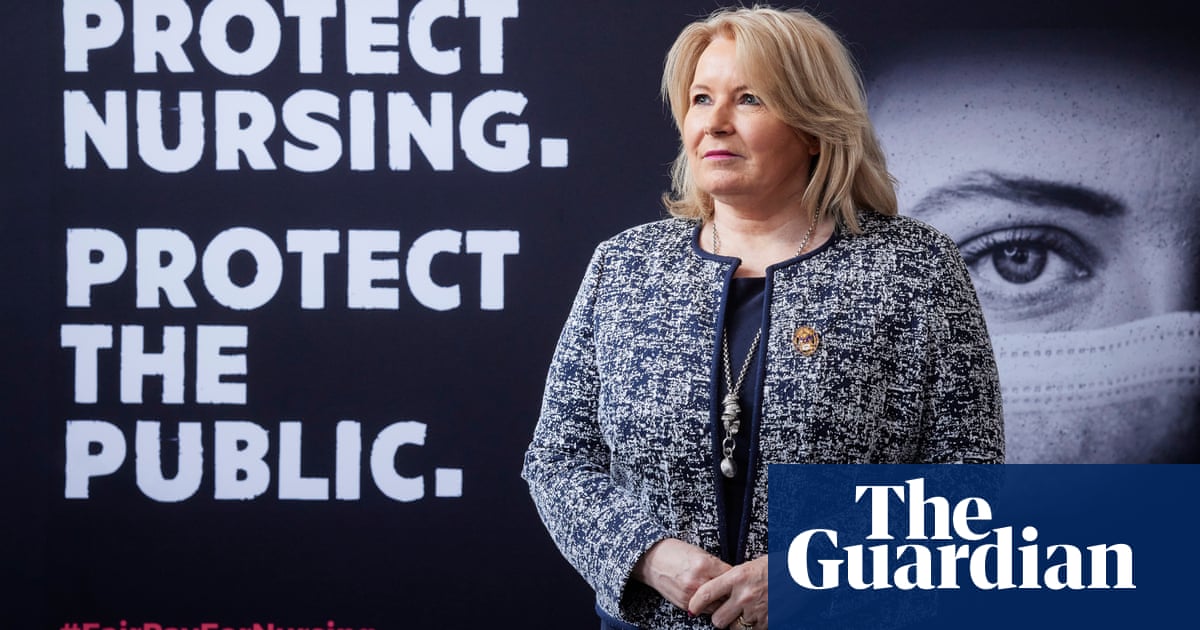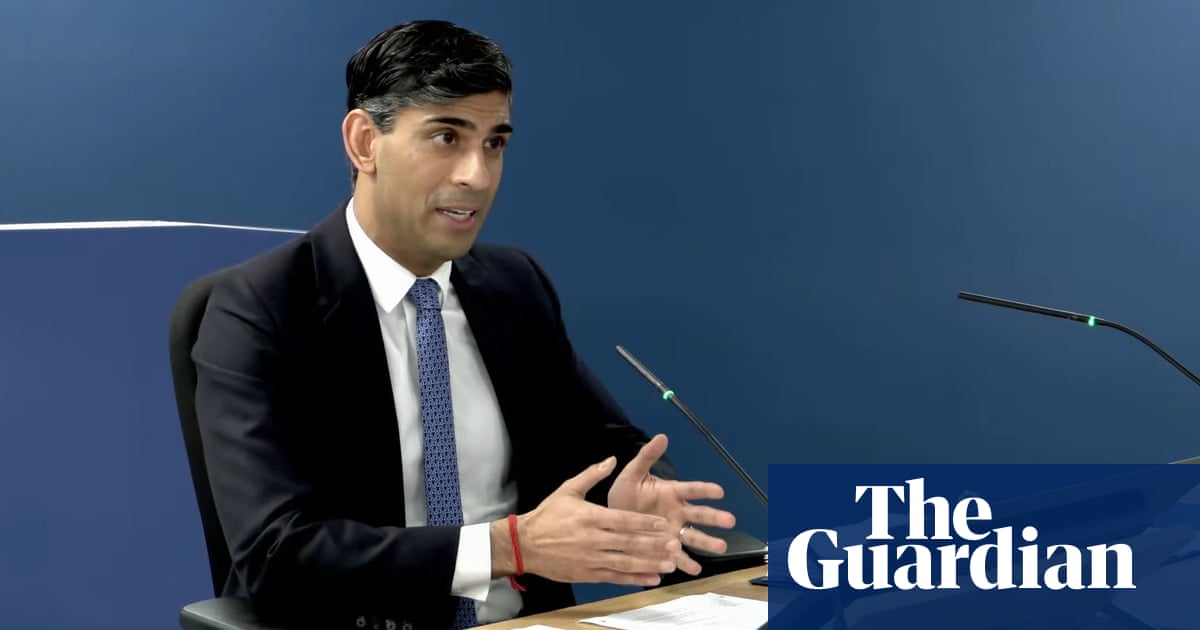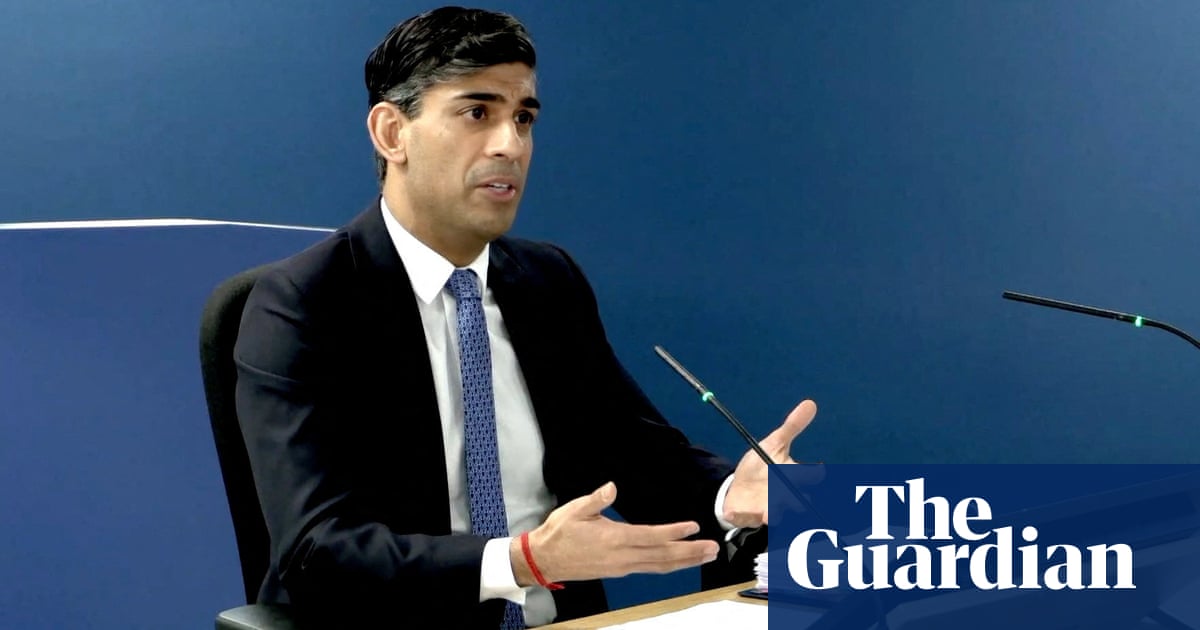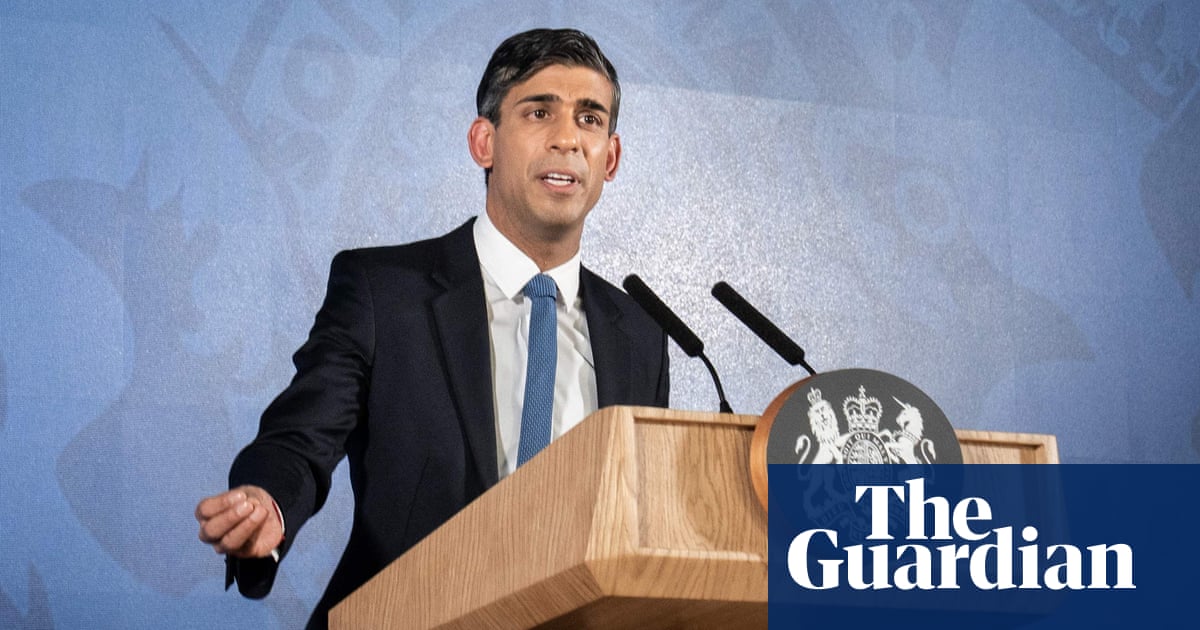
NHS waiting times are too long, Rishi Sunak has admitted in a new year’s speech that saw him urge hospitals not to cancel elective surgeries despite the severe pressure on A&E departments.
The prime minister did not say whether people should expect immediate improvement in the health service, after reports of unnecessary deaths due to long ambulance response times and difficulties transferring patients into hospital.
He admitted “people are waiting too long for the care they need” but stressed that ensuring waiting lists started to fall was one of his five key pledges.
During the Covid pandemic, Sunak said, the NHS drastically reduced scheduled surgeries, and he urged hospitals not to do so again, to deal with the significant number of people requiring urgent treatment at A&E.
“That’s what we shouldn’t do,” he told a press conference in east London on Wednesday. “That’s what happened during Covid. We stopped doing elective surgery.
“The amount of elective activity in the NHS was down to about half of what it normally does. So the reason we’ve got a huge waiting list now is because we’re having to catch up with that.”
Acknowledging the pressure on the NHS after No 10 was criticised for its response to the crisis, Sunak said: “I know there are challenges in A&E. People are understandably anxious when they see ambulances queueing outside hospitals.”
More hospital bed capacity was promised as well as funding for social care to help discharge people who are healthy enough. But when asked how quickly NHS services would improve, Sunak did not give a clear answer.
He said the “most acute pressure” this winter was in A&E, adding: “That’s the thing that people are most worried about.”
Reiterating his pledge to bring elective surgery waiting times down, Sunak said in “just a few months” he expected to have “practically eliminated” people having to wait a year and a half.
Sunak also made four other pledges, saying that by the end of 2023 inflation would be halved and national debt would be falling.
He also vowed to ensure economic growth and “stop the boats” – referring to people-smugglers taking people across the Channel – but refused to give a deadline for either.
“No tricks, no ambiguity, we’re either delivering for you or we’re not,” said Sunak.
“We will rebuild trust in politics through action, or not at all. So, I ask you to judge us on the effort we put in and the results we achieve.”
Sunak said the policies were foundations “on which to build a better future for our children and grandchildren”.
The message, a recognition of the uphill struggle to reduce the Conservatives’ polling deficit, will also be seen as a plea from Sunak to unruly Tory backbenchers to focus on making progress on manifesto commitments instead of displaying disunity.
Plans for all pupils in England to study maths up to the age of 18 to tackle innumeracy and better equip them for the modern workplace were also confirmed by the prime minister.
Looking forward to the year ahead, Sunak said he knew people were approaching 2023 with “apprehension”, and voiced hopes of restoring optimism.
Though he repeated a promise to tackle strike action, Sunak did not give any details about legislation. He promised to say more in “the coming days about our approach”.
The new year’s speech was significantly different from his last public address, on the steps of Downing Street on the day he became prime minister.
Then, he remained solemn and focused on the immediate issue posed by a loss of market confidence after the mini-budget and deposition of Liz Truss. But in the weeks since, he has been under growing pressure to outline “Sunakism” and give the Conservative party a stronger mission in the run-up to the next election.




